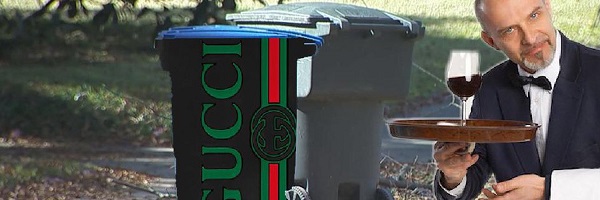The Lineup: Who We’ll Hear from in the First Two
Post# of 82692


By Eileen McDermott
May 29, 2019
0 Print Article
“Overall, the list is quite balanced between those who will argue for and against reform. This is a change in and of itself.”
To kick off the month in which Alice v. CLS Bank will turn five, the Senate Judiciary Committee’s Subcommittee on Intellectual Property will hold its first two hearings on “The State of Patent Eligibility in America.” The hearings are scheduled for Tuesday, June 4 and Wednesday June 5, both at 2:30 PM in the Dirksen Senate Office Building, and the Subcommittee has now published the rosters for both hearings.
As mentioned in a Senate press release last week, there will be three hearings held in total, on June 4, 5 and 11, featuring three panels of five witnesses each, for a total of 45 witnesses over three days. Overall, it is quite balanced between those who will argue for and against reform. This is a change in and of itself; congressional hearings on patent legislation over the past decade have largely favored those arguing against pro-patent reforms.
IPWatchdog will cover these hearings, and several of the witnesses testifying next week — Chief Judge Paul Michel, Sherry Knowles and Phil Johnson —will be speaking later in the month at our Patent Masters™ Symposium titled Alice Five Years Later.
Tuesday, June 4
Paul Michel

The first panel for Tuesday includes former Federal Circuit Chief Judge Paul Michel; former USPTO Directors Q. Todd Dickinson and David Kappos; Charles Duan of R Street Institute; and Professor Jeffrey Lefstin of the University of California Hastings College of the Law.
Michel and Dickinson have been active in the reform process, and Kappos presumably understands the importance of having clear language with which to guide examiners.
Todd Dickinson

Charles Duan is Director, Technology & Innovation and Senior Fellow at the R Street Institute, a “nonprofit, nonpartisan, public policy research organization.” Duan has written that “patent protection is beneficial up to a point. But to the extent that patents—or, more commonly, legal strategies involving patents—overreach to suppress competition, that overreach should be cause for concern.” Lefstin has remarked that the Supreme Court’s recent. Decisions on Section 101 are “impeding the development of new inventions.”
Sherry Knowles

The second panel will feature Robert Armitage, former Senior Vice President and General Counsel for Eli Lilly and Company; Professor David Taylor, Co-Director of the Tsai Center for Law, Science and Innovation and Associate Professor of Law at the Southern Methodist University Dedman School of Law; Sherry Knowles of Knowles Intellectual Property Strategies; Alex Moss of the Electronic Frontier Foundation (EFF); and Mark Lemley of Stanford University School of Law.
Bob Armitage laid out his vision for Section 101 reform pretty clearly in a presentation for a USPTO Roundtable event in 2016.
David Taylor

Professor Taylor’s faculty profile page highlights the following quote right up top: “The Supreme Court’s treatment of patent eligibility has created a moment not unlike 1952, when Congress amended the patent statute to overturn the Supreme Court’s so-called ‘invention’ requirement.” He also has written numerous articles on the topic.
Like her leadership in the long-ago fight against the USPTO’s claims and continuations rules package, Knowles has been a champion for reform, arguing that the Supreme Court’s judicially created exceptions are unconstitutional.
Lemley acknowledged the detrimental effects of Alice on software eligibility in an interview with IPWatchdog, and has stated in another interview that he does “worry that we might continue blindly toward an anti-patent mindset, which could be just as destructive as too strong a patent protection mindset.”
Moss will argue against reform. Her title at EFF is Mark Cuban Chair to Eliminate Stupid Patents and Staff Attorney. She has been vocal in her feeling that the Coons-Tillis bill is “terrible” and “will be a disaster for innovation.” Here is an excerpt from her most recent article on the draft bill:
Who will benefit most from the proposal? Companies that make money from aggressively licensing and litigating patents, especially in the fast-growing fields of artificial intelligence and medical diagnostics. And, of course, the patent lawyers and law firms who make money representing them.
Not to mention, patent trolls. With Section 101 broken, defendants will have lost a powerful tool for fighting bad patents. Most of the small businesses we profiled in our “Saved by Alice” project would have likely been pushed toward lengthy and expensive trials, rather than fast and fair resolutions, in order to defend against false infringement charges.
Patrick Kilbride

The final panel of the day will feature Michael Rosen of the American Enterprise Institute; Professor Paul Gugliuzza of Boston University School of Law; Professor Joshua Sarnoff of DePaul University; and Patrick Kilbride, Senior Vice President, Global Innovation Policy Center (GIPC) at the U.S. Chamber of Commerce.
Joshua Sarnoff

Following the release of the GIPC’s International IP Index this year, Kilbride said that patent eligibility law was a concern for GIPC, and that they were encouraged by Director Andrei Iancu’s guidance for examiners.
A recent article summarizing the draft bill released by Coons and Tillis last week gives little indication of Professor Rosen’s view on the subject.
A scholarly article published by Gugliuzza raises the procedural ramifications of the Supreme Court’s recent approach to patent eligibility, and provides a “procedural framework for resolving eligibility that would allow courts to quickly invalidate ‘bad’ patents while reducing the danger they will erroneously invalidate a ‘good’ patent on an inadequately developed record.”
Finally, Joshua Sarnoff has rejected Knowles’ and Anthony Prosser’s argument that the Supreme Court’s judicially-created exceptions are unconstitutional. From his comment posted on Patent Docs:
The “unconstitutional” rhetoric is simply wrong and misleading, as the so-called “judicial exceptions” were always statutory interpretations (in OReilly, Funk, Flook, and since) of the same statutory “invents or discovers” language, and thus the argument is simply that the courts have miscontrued the statute. It would be correct to make a constitutional argument (as I have) that Congress lacks the authority to authorize patents currently held excluded as a statutory matter should Congress choose to do so (and in Bilksi there were arguments that the Constitution did not authorize patents on business methods as not “useful arts”), but unless they are stating that Congress MUST authorize the PTO to issue patents that the judges are holding invalid under the statute, this is simply a garden variety statutory interpretation case, with the unconstitutional argument intended to pander to public sentiments for those already (or who might then be) inclined to believe that argument or to make weight for the statutory construction argument.
Wednesday, June 5
Lisa Jorgenson

The second hearing will feature an array of IP and industry association representatives. The first panel will include Lisa Jorgenson, Executive Director of the American Intellectual Property Law Association (AIPLA); Scott Partridge, Immediate Past Chair of the IP Law Section of the American Bar Association (ABA); Henry Hadad, President of the Intellectual Property Owners Association (IPO); David Jones, Executive Director of the High-Tech Inventors Alliance; and Stephanie Martz, Senior Vice President and General Counsel of the National Retail Federation, who is testifying on behalf of United for Patent Reform.
While most IPWatchdog readers will be familiar with AIPLA, the ABA and IPO, here is some background on the High-Tech Inventors Alliance, which was formed in 2017 by eight tech companies owning a collective 115,000 patents.
United for Patent Reform is firmly pro-Alice, and states on its patent reform page that “in Alice v. CLS Bank, a unanimous Supreme Court restated what had long been the law: abstract ideas like business methods cannot be patented…. Like IPR, Alice made the NPE business model of buying and suing on low quality patents less lucrative and decreased the attacks. Since these changes, innovation and the economy has surged at every significant metric.”
Paul Morinville

The second panel of the day will include frequent IPWatchdog contributor Paul Morinville of U.S. Inventor; Phil Johnson, Chair of the Steering Committee for the Coalition for 21st Century Patent Reform; Dr. William Jenks of Jenks IP Law, on behalf of the Internet Association; Christopher Mohr, Vice President for IP and General Counsel of the Software and Information Industry Association; and Jeffrey Birchak, General Counsel and Vice President of IP, and Secretary, Fallbrook Technologies on behalf of the Innovation Alliance.
Christopher Mohr

The Internet Association’s members include Amazon, Facebook, Google, etc. and will argue against reform.
Mohr of the SIIA has also argued against reform and in favor of Alice and the AIA in the past. Johnson, Morinville, and Birchak will make the case for reform.
Hans Sauer

The last panel will have a pharma/ bio focus—a particularly crucial area for reform. It will include Jeff Francer, General Counsel of the Association for Accessible Medicines; Hans Sauer, Deputy General Counsel for IP at the Biotechnology Innovation Organization (BIO); Natalie Derzko, Of Counsel at Covington & Burling, on behalf of the Pharmaceutical Research and Manufacturers of America (PhRMA); Rick Brandon, Associate General Counsel, The University of Michigan, on behalf of the Associations of American Universities and Council on Government Relations; and Kate Ruane, Senior Legislative Counsel of the American Civil Liberties Union.
The Association for Accessible Medicines (AAM) said in a statement submitted to the Senate Judiciary Committee earlier this month that the current state of patent eligibility law does “not warrant any sea change in the law,” pointing to cases where the Federal Circuit had upheld as eligible patents that the AAM would argue were ineligible. While AAM said it disagrees with the application of the law to the facts in those cases, it maintained that “meaningful patent eligibility standards, such as those under Section 101, must be maintained if we are to avoid even higher drug prices due to abuses of the patent system by some brand-name drug companies.”
The Associations of American Universities and Council on Government Relations has been supportive of Director Iancu’s Subject Matter Eligibility guidance.
The ACLU, which famously challenged the Myriad patent claims directed to screening, identifying, and isolating the BRCA1/2 genetic sequences, will likely argue against the proposed Section 101 language.
It should be an interesting two days. Stay tuned to IPWatchdog for the full reports.
THE AUTHOREileen McDermott
Eileen McDermott is the Editor-in-Chief of IPWatchdog.com. Eileen is a veteran IP and legal journalist, and no stranger to the intellectual property world, having held editorial and managerial positions at several publications and industry organizations. She has acted as editorial consultant for the International Trademark Association (INTA), chiefly overseeing the editorial process for the Association’s twice-monthly newsletter, the INTA Bulletin. Eileen has also served as a freelance editor for the World Intellectual Property Organization (WIPO); as senior consulting editor for the Intellectual Property Owners Association (IPO) from 2015 to 2017; as Managing Editor and Editor-in-Chief at INTA from 2013 to 2016; and was Americas Editor for Managing Intellectual Property magazine from 2007 to 2013.
 (4)
(4) (0)
(0)Zerify Inc (ZRFY) Stock Research Links
Never argue with stupid people, they will drag you down to their level and then beat you with experience.
Get .... PrivacyLok https://cyberidguard.com/
Try SafeVchat: https://cyberidguard.com/
My comments are only my opinion and are not to be used for investment advice.
Please conduct your own due diligence before choosing to buy or sell any stock.
